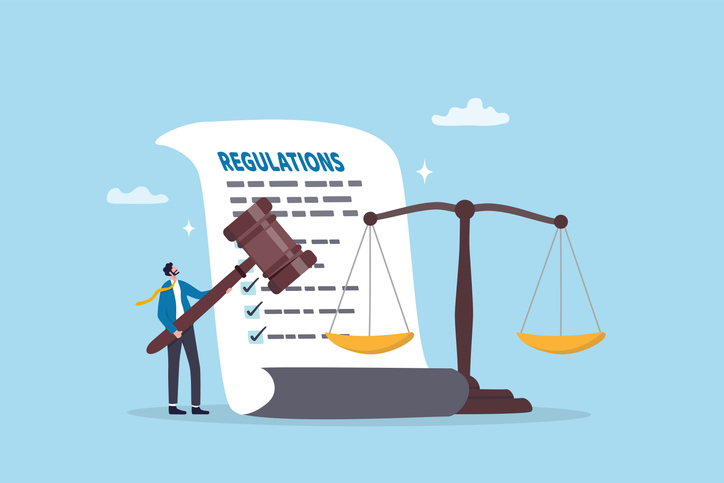Games are often seen as a fun way of passing time and considered a distraction from education and professional success. However, we’re turning that view on its head. We believe games are actually an abundant source of business lessons that SME leaders can benefit from. We launched the Let’s Play Business! podcast to help business leaders understand the lessons that can be drawn from the games around them, many of which they’ve probably played at some point in their lives.
6 things games can teach us about doing business
We’ve had some excellent business leaders on as guests, including Chris Rhodes, operations director at The Tech Dept, and Susanna Lawson, CEO and co-founder of OneFile and 2017’s Businesswoman of the Year.
Here are the top tips discussed in the first four episodes:
#1 – Strategic thinking – defend what can be defended, consolidate and build back up
Both Monopoly Deal and chess are great at encouraging strategic thinking, with players asking themselves, what actions can I take now to improve my current situation and what actions will have the most significant impact? When you’re running a business, the same applies, especially when the challenges are multiple and often overwhelming. The advice here is to focus on the two or three things that will have the most positive impact and concentrate purely on those.
#2 – Be decisive – avoid ‘analysis paralysis’
In the game, Sh*thead, players have access to lots of information and it’s the same for business owners and leaders; some information only they know and can see (your internal organisational information), some everyone can see (market/public domain data), and some nobody can see (market fluctuations/unpredictable events). Just like in the game, it’s vital for leaders to concentrate on the information and data they can see rather than obsessing over the information they can’t see or have no control over, which could cause ‘Analysis Paralysis’.
This is about leaders making decisions based on what they know, rather than getting consumed waiting for data or insights they may never receive or gain access to.
Meanwhile, Pac Man teaches you how to be utterly decisive as you need to be in business. In short, if you’re not decisive, you’ll die (or the Pac Man ghosts will eat you). Just like when you’re starting a business, players don’t get a moment’s rest – you’ve got to make decisions on your next move constantly. Of course, you won’t always make the right call, but the impact of not making the decision at all will be far worse.
#3 – Invest in ongoing learning and development
World of Warcraft is all focused around building a “career” as your character levels up, learns new abilities and takes on more challenging quests. In business, the same applies – people need to hone their skills, continue to learn and identify areas for development otherwise you’ll hit a ceiling and be unable to progress, while others will overtake you. Recognising that the only way to improve is to compete against better “players” and be willing to get knocked down and pick yourself back up again is critical in business. Reflect on what went wrong and learn from it and surround yourself with talented people you can learn from.
>See also: How to spring clean your digital space to become more productive
#4 – Long-term versus short-term planning
Thinking about chess again, this game is all about balancing long-term and short-term planning. All players have access to all the same information, and given there is so much of it, often the brain can’t comprehend all the different options; as such you need to make assumptions, for example, what your opponent (competitor) is going to do. As a result, players can often become too focused on the short-term tactics rather than the long-term strategy. To think about the long-term, and to make long-term gains, you have to be willing to make short-term sacrifices (for example pawns).
The best players balance the two perfectly, and the same is true in business. And understand that even the best laid long-term plans can fail because life happens. For example, a competitor may make a series of unexpected moves, so your long-term plans need to adapt and respond accordingly.
#5 – Communication and adapting to fit the audience
Communication is vital in all aspects of business, from engaging internal stakeholders and employees to attracting customers. However, it can often be misunderstood or misinterpreted. Think about a game of charades – when players can see they are not communicating effectively because their teammates are failing to guess the right answer, the most effective next step is to change communication tactic. However, some people will get flustered and perform worse rather than adapt their style and get better.
In business, this is particularly true when it comes to presenting, when it’s critical to remain clearheaded. Often, common signals are universally understood, however, jargon is not. To be effective at communication, and charades, you must learn to adjust your language to people/stakeholders based on their level of existing understanding. It’s important to think about your audience and their needs rather than yourself when it comes to presenting and communicating.
#6 – Finding the right people
When it comes to hiring the right talent, and finding the right people at the right time, there is no better game than Guess Who. When this game gives us limited time and questions, we often come up with incredibly creative ways of finding out multiple pieces of information through just a few lines of enquiry. The same can be applied to an interview process. For example, by ensuring the questions you ask relate to your business culture, objectives and ethos, rather than just skills-based questions, you will be in a much stronger position to identify the most suitable fit for your business.
And given how expensive the recruitment process can be, both in terms of time and money, it’s vital for any small business to hire the right people, first time.
Games that your business can learn from
Monopoly Deal
The objective of the game is to be the first player to complete three full property sets on the table in front of you. Each property card tells you how many property cards you need of that colour to complete the set.
Chess
The goal of every chess game is to checkmate the opponent’s king. Checkmate is when the opponent’s king is attacked by one of your chess pieces and can’t escape, either by moving the king away or getting protection from other chess pieces.
Sh*thead
Also known by many other names, including Karma, Palace and Shed, is a card game, the object of which is to lose all of one’s playing cards, with the final player being the ‘sh*thead’.
Pac-Man
Pac-Man is an action maze chase video game; the player controls the character through an enclosed maze. The objective of the game is to eat all of the dots placed in the maze while avoiding four coloured ghosts that pursue him.
World of Warcraft
World of Warcraft contains many hundreds of objectives. From reaching the maximum character level and collecting armour, to killing bosses and ultimately becoming an elite player. The journey and eventual completion of these objectives are why players play.
Charades
Charades is a game of pantomimes: you have to act out a phrase without speaking while your team members try to guess what the phrase is as quickly as possible before time runs out.
Guess Who
Each player selects a card of their choice from a separate pile of cards containing the same 24 images. The objective of the game is to be the first to determine which card one’s opponent has selected.
Hosted by founder of Alternate Experiences, Ben Fowler and Zuki Majuqwana, the Let’s Play Business! podcast explores what SME leaders and professionals can learn from games and apply to business, from traditional board games to multiplayer video games





